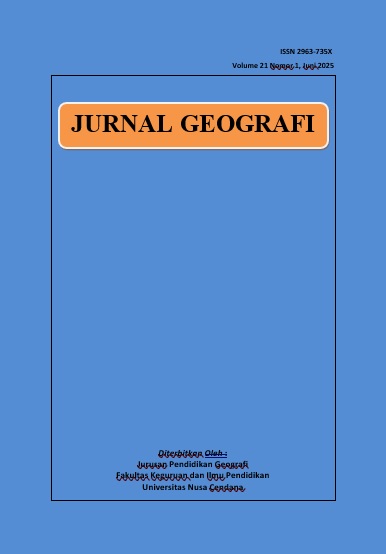ANALISIS ETIKA LINGKUNGAN DALAM KASUS TAMBANG TIMAH BANGKA BELITUNG
Abstract
Tin mining in the Bangka Belitung Islands Province has long been a strategic economic sector since the colonial era. Despite its significant contribution to the national economy, this activity has led to complex ecological and social impacts, including environmental degradation, pollution, and social conflict. This study aims to analyze tin mining practices through the lens of environmental ethics, highlighting the moral imbalance between human interests and nature. Employing a qualitative case study approach, the research draws on a literature review of scholarly articles, media investigations, and theoretical frameworks of environmental ethics—particularly anthropocentrism, biocentrism, and ecocentrism. The findings reveal the dominance of anthropocentric values in mining policies and practices, wherein human interests are prioritized over ecosystem sustainability. Weak governance, the prevalence of illegal mining, and widespread environmental damage point to an ethical crisis in natural resource management. Biocentric and ecocentric approaches are proposed as normative alternatives that recognize the intrinsic value of nature and non-human life forms. This study underscores the urgency of reformulating development paradigms based on ecological justice to achieve more inclusive and ethical sustainability in resource governance in Indonesia

 Febriyanti Angelia Ginting(1*)
Febriyanti Angelia Ginting(1*)




